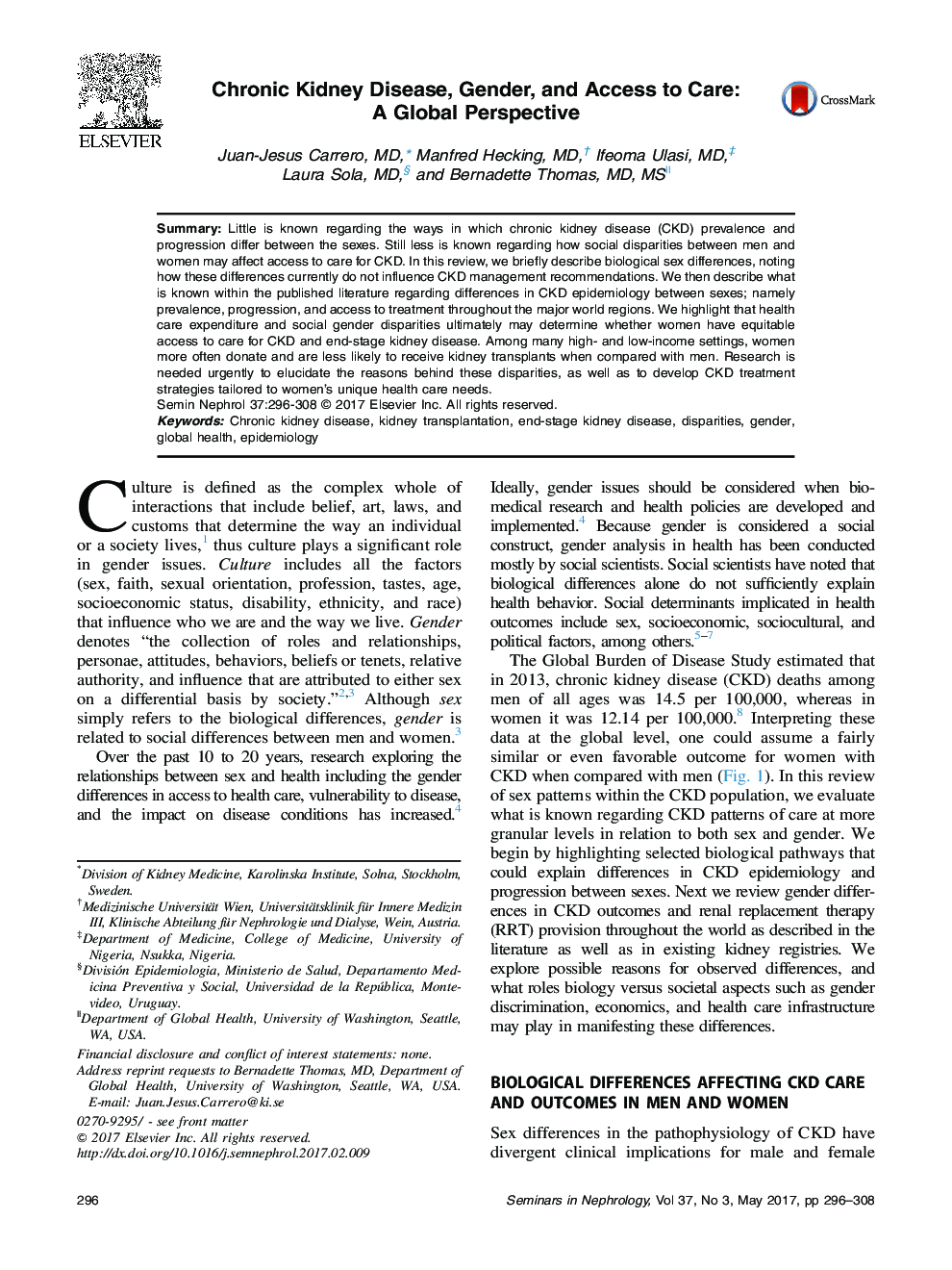| Article ID | Journal | Published Year | Pages | File Type |
|---|---|---|---|---|
| 5690291 | Seminars in Nephrology | 2017 | 13 Pages |
Abstract
Little is known regarding the ways in which chronic kidney disease (CKD) prevalence and progression differ between the sexes. Still less is known regarding how social disparities between men and women may affect access to care for CKD. In this review, we briefly describe biological sex differences, noting how these differences currently do not influence CKD management recommendations. We then describe what is known within the published literature regarding differences in CKD epidemiology between sexes; namely prevalence, progression, and access to treatment throughout the major world regions. We highlight that health care expenditure and social gender disparities ultimately may determine whether women have equitable access to care for CKD and end-stage kidney disease. Among many high- and low-income settings, women more often donate and are less likely to receive kidney transplants when compared with men. Research is needed urgently to elucidate the reasons behind these disparities, as well as to develop CKD treatment strategies tailored to women's unique health care needs.
Keywords
Related Topics
Health Sciences
Medicine and Dentistry
Nephrology
Authors
Juan-Jesus MD, Manfred MD, Ifeoma MD, Laura MD, Bernadette MD, MS,
